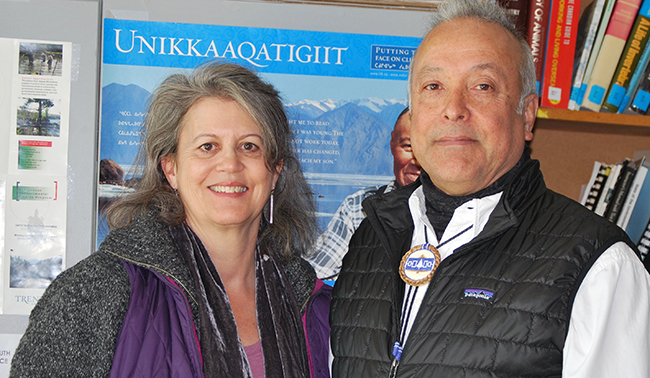Trent University changing the conversation

Director Indigenous Environmental Studies and Science Program.
Trent University, Peterborough Ontario—Trent University’s Indigenous Environmental Studies and Sciences (IESS) program is changing the conversation and the way we think and talk about environmental issues. “IESS is the first degree-granting program in North America that recognizes the importance of using multiple knowledges—like Western science, Traditional Indigenous Knowledge and others—in addressing complex environmental challenges,” explains Dan Longboat, director of the IESS program.
“We understand that environmental problems are becoming increasingly complex and that the thinking that created these issues is not necessarily going to lead to any lasting solutions to these problems,” suggests Longboat. Students, faculty and supporters of IESS have been using this emerging discipline to tackle broad problems, from climate change and resource extraction issues to food security and sovereignty issues in on-reserve communities. “This is what Re-igniting the Sacred Power of Creation is all about – creating new conversations, linking practitioners and thinkers, and empowering and inspiring people to find lasting ways to create positive, transformative change in their communities,” Longboat explains.
According to Barbara Wall, the chair of the conference planning committee, “We are opening the doors to IESS and these conversations at our first IESS conference this April. We will hear from Traditional Knowledge Holders and Elders from across the globe as well as scientists, activists, artists and others to create a forum for deep discussions and develop plans for moving forward.” The conference planning team hopes to move beyond mere explanation of issues by creating time and space for participants and speakers to engage in discussions and create plans for enacting transformative action when they leave the conference.
The conference will take place at Trent University on April 22-24th, 2016. Academics from all backgrounds and disciplines, as well as Knowledge Holders and Elders, community activists and practitioners, are invited to submit abstracts to host a panel, talking circle or other creative form of information sharing and dialogue.
“The timing of this conference is important as we hope to draw upon the momentum of the Truth and Reconciliation Commission’s recommendations and recent human rights work by the United Nations in recognition that human rights and social justice issues are inextricably linked to the environmental challenges we collectively face,” says Wall.
For more information on Re-igniting the Sacred Power of Creation, please visit the conference website at www.iessconference.org or contact: barbarapotter@trentu.ca

